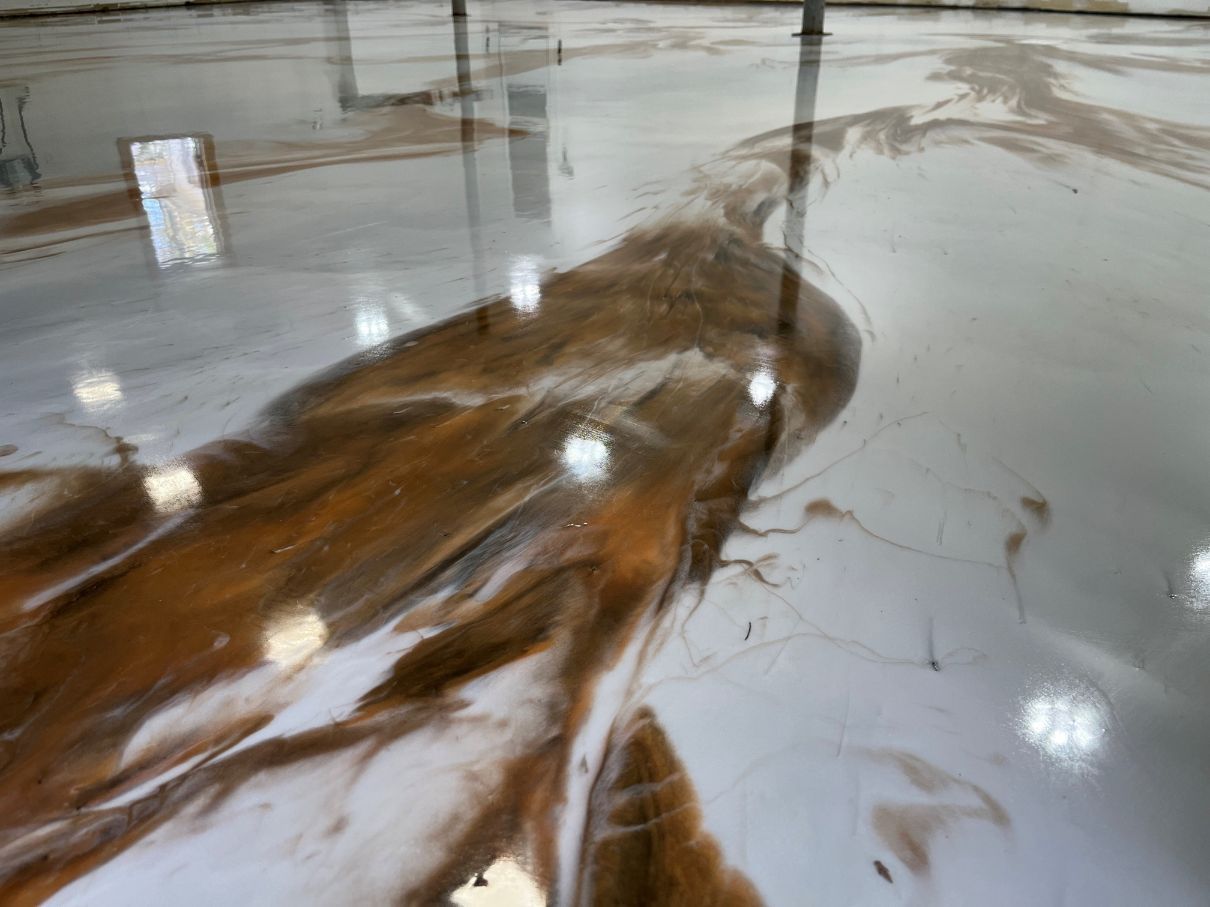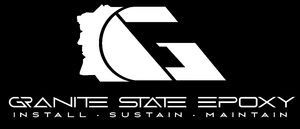Epoxy vs Urethane Floor Coatings – Which One Do You Need?
When it comes to selecting the right floor coating for your commercial or industrial space, the decision often boils down to two formidable contenders: epoxy and urethane. Both offer exceptional durability, chemical resistance, and aesthetic appeal, but which one is right for your needs? In this comprehensive guide, Granite State Epoxy explores the distinct qualities of epoxy and urethane floor coatings, helping you make an informed decision that suits your specific requirements.

Understanding Epoxy Floor Coatings
Epoxy floor coatings are renowned for their strength, durability, and versatility. They are commonly used in environments that demand high-performance flooring, such as warehouses, manufacturing plants, garages, and retail spaces.
The Composition of Epoxy Coatings
Epoxy coatings are created by mixing epoxy resin with a polyamine hardener. This chemical reaction results in a highly durable, thermosetting polymer that bonds seamlessly to concrete surfaces. The resulting floor is not only robust but also highly resistant to wear and tear.
Key Benefits of Epoxy Floor Coatings
Epoxy floor coatings provide numerous benefits that make them a preferred choice for various applications:
- Durability: Epoxy floors are highly resistant to abrasion, making them ideal for high-traffic areas.
- Chemical Resistance: These coatings are impervious to chemicals, oils, and other contaminants, making them perfect for industrial settings.
- Aesthetic Appeal: Available in a variety of colors and finishes, epoxy floors can enhance the appearance of any space.
- Easy Maintenance: Epoxy floors are easy to clean and maintain due to their smooth, non-porous nature.
- Adhesion: Epoxy adheres strongly to concrete, ensuring a long-lasting bond that prevents peeling or lifting.
Common Applications for Epoxy Coatings
Epoxy coatings are versatile and can be used in a wide range of environments, including:
- Commercial Spaces: Retail stores, showrooms, and office buildings benefit from the durability and aesthetics of epoxy floors.
- Industrial Settings: Manufacturing plants, warehouses, and factories rely on epoxy coatings for their strength and resistance to chemicals.
- Residential Garages: Epoxy floors are a popular choice for garages because of their durability and resistance to oil and grease.
- Healthcare Facilities: The seamless nature of epoxy floors makes them easy to sanitize, ideal for hospitals and laboratories.
Urethane Floor Coatings – A Closer Look
Urethane floor coatings, also known as polyurethane coatings, are another high-performance flooring option. They are often used in conjunction with epoxy coatings to provide an additional layer of protection.
The Composition of Urethane Coatings
Urethane coatings are composed of a urethane resin that cures through a chemical reaction with a catalyst. The result is a flexible, yet durable coating that provides excellent resistance to abrasion and impact.
Key Benefits of Urethane Floor Coatings
Urethane floor coatings offer several advantages that make them a preferred choice for certain applications:
- UV Resistance: Urethane coatings are highly resistant to UV rays, making them ideal for outdoor or sun-exposed areas.
- Flexibility: Unlike epoxy, urethane is more flexible, allowing it to absorb impacts without cracking.
- Abrasion Resistance: Urethane coatings are extremely resistant to wear, making them suitable for areas with heavy foot or vehicle traffic.
- Chemical Resistance: While not as resistant as epoxy, urethane still offers good protection against a variety of chemicals.
- Gloss Retention: Urethane maintains its glossy finish over time, even in harsh conditions.
Common Applications for Urethane Coatings
Urethane coatings are versatile and can be used in a variety of settings, including:
- Parking Garages: The UV resistance and durability of urethane make it ideal for parking decks and garages.
- Outdoor Areas: Urethane’s resistance to sunlight and weathering makes it a great choice for outdoor flooring.
- Manufacturing Plants: Urethane is often used in conjunction with epoxy in manufacturing environments for added protection.
- Food and Beverage Facilities: Urethane’s flexibility and abrasion resistance make it suitable for areas where heavy machinery is used.
Epoxy vs Urethane – A Comparative Analysis
Now that we’ve explored the individual characteristics of epoxy and urethane, it’s time to compare them head-to-head. Understanding the differences between these coatings helps you choose the one that best suits your needs.
Durability and Strength
When it comes to strength and durability, epoxy coatings are unmatched. Epoxy’s ability to bond tightly to concrete surfaces makes it highly resistant to heavy loads and impact. Urethane, while still durable, is more flexible, which allows it to absorb impacts without cracking but may not provide the same level of hardness as epoxy.
Ideal Environments
- Epoxy: Best suited for industrial settings, warehouses, and other environments where heavy equipment is used.
- Urethane: Ideal for areas with frequent foot traffic, outdoor spaces, and environments where flexibility is key.
Chemical and UV Resistance
Epoxy coatings are known for their superior chemical resistance, making them ideal for environments where spills and chemical exposure are common. Epoxy can yellow or degrade under UV light, making it less ideal for outdoor use.
Urethane, on the other hand, offers excellent resistance to UV rays, maintaining its appearance and performance even in sun-exposed areas. While its chemical resistance is slightly lower than that of epoxy, it still provides robust protection against a range of substances.
Ideal Environments
- Epoxy: Best for indoor environments where chemical exposure is frequent.
- Urethane: Ideal for outdoor areas or spaces with exposure to sunlight.
Aesthetic Appeal
Both epoxy and urethane coatings offer aesthetic flexibility, with various color options and finishes available. However, urethane has the edge in maintaining a glossy finish over time, even in harsh conditions.
Ideal Environments
- Epoxy: Great for spaces where initial appearance is important, but where long-term exposure to sunlight is limited.
- Urethane: Perfect for areas where maintaining a high-gloss finish is a priority, especially in sunlit or outdoor spaces.
Maintenance and Longevity
Both epoxy and urethane floors are low-maintenance, but there are differences in their upkeep. Epoxy floors are harder and more scratch-resistant, making them easier to clean. Urethane floors, being more flexible, may need more frequent maintenance to stay in top condition.
Ideal Environments
- Epoxy: Best for areas where ease of cleaning and stain resistance are critical.
- Urethane: Ideal for spaces where regular maintenance is feasible, and flexibility is needed.
Making the Right Choice for Your Flooring Needs
When choosing between epoxy and urethane floor coatings, consider the specific demands of your environment. Are you looking for maximum durability and chemical resistance? Or do you need a floor that can withstand UV exposure and maintain its appearance over time?
Consider Your Environment
- Industrial Spaces: If your space sees heavy machinery and frequent chemical spills, epoxy is likely the better choice.
- Outdoor or Sunlit Areas: Urethane’s UV resistance makes it the superior option for outdoor applications or areas with significant sunlight.
- High-Traffic Areas: Both epoxy and urethane can handle heavy foot traffic, but urethane’s flexibility may give it the edge in environments with frequent impacts.
Budget Considerations
Budget is always a consideration in flooring decisions. Generally, epoxy coatings tend to be more cost-effective upfront due to their strength and durability. Urethane, while potentially more expensive, offers added benefits such as UV resistance and flexibility that can justify the additional cost, depending on the application.
Frequently Asked Questions
1. What is the Difference Between Epoxy and Urethane Floor Coatings?
Epoxy and urethane floor coatings differ primarily in their composition, durability, and application. Epoxy is a hard, durable coating ideal for industrial settings, offering excellent chemical resistance and a strong bond to concrete. Urethane, on the other hand, is more flexible, UV-resistant, and better suited for areas with high foot traffic or outdoor exposure. Your choice depends on your specific needs—environment, expected wear, and desired aesthetics.
2. Which Floor Coating is More Durable: Epoxy or Urethane?
Epoxy coatings are generally more durable in terms of hardness and resistance to heavy loads, making them ideal for industrial settings and areas with heavy machinery. Urethane is also highly durable but offers more flexibility, making it resistant to impacts and less prone to cracking. While epoxy provides superior chemical resistance, urethane excels in UV resistance and abrasion. The choice depends on the specific conditions your floor will face.
3. Can Urethane Floor Coatings Be Applied Over Epoxy?
Yes, urethane floor coatings can be applied over epoxy to enhance durability, UV resistance, and overall performance. This combination is common in industrial and commercial settings where the strength of epoxy is needed, along with the flexibility and abrasion resistance of urethane. Applying urethane over epoxy creates a multi-layered system that provides both protection and aesthetic appeal, ensuring a long-lasting and resilient flooring solution.
4. How Long Do Epoxy and Urethane Floor Coatings Last?
The longevity of epoxy and urethane floor coatings depends on factors like environment, usage, and maintenance. Epoxy floors can last 10–20 years in industrial settings, thanks to their hardness and chemical resistance. Urethane floors, known for their flexibility and UV resistance, can also last 10–15 years, particularly in high-traffic or outdoor areas. Proper maintenance, with regular cleaning and timely repairs, extends the lifespan of both coatings.
Conclusion – Partner with Granite State Epoxy for Expert Flooring Solutions
Choosing between epoxy and urethane floor coatings can be challenging, but Granite State Epoxy is here to guide you every step of the way. With our expertise in both epoxy and urethane installations, we can help you determine the best solution for your specific needs.
Upgrade Your Floors with the Best Coating
Ready to enhance your floors? Whether you choose epoxy or urethane, we offer professional installation services that guarantee lasting results. Start your flooring transformation today!
Why Choose Granite State Epoxy?
- Expert Consultation: We provide in-depth consultations to help you choose the best flooring solution.
- Professional Installation: Our experienced team ensures flawless application and long-lasting results.
- Quality Materials: We use only the highest quality epoxy and urethane products for your flooring needs.
- Customer Satisfaction: Your satisfaction is our top priority, and we strive to exceed your expectations with every project.
Don’t settle for less when it comes to your flooring. Trust Granite State Epoxy to deliver exceptional results that stand the test of time.
Contact us today and take the first step toward transforming your space with the perfect floor coating.
